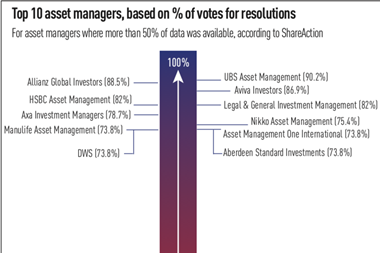The Oslo-based Council on Ethics, which advises Norway’s NOK10.8tn (€986bn) sovereign wealth fund, has taken its work on forced labour practices in Gulf states a step further by hiring a US non-profit firm to do on-the-ground investigations.
The council appointed Verité, which is based in Amherst, Massachusetts, and describes itself as an independent, non-profit, civil society organisation, for a two-year extendable contract, according to an official contract award notice.
The Norwegian Ministry of Finance said in the original tender launched in May that the council was looking to form a framework agreement with an external provider “to conduct investigations into companies in the fund’s portfolio that are involved in practices that may constitute forced labour or other forms of exploitation in working life.”
It said these investigations should focus particularly on the working situations for migrant workers.
“The investigations shall form a basis for decisions on whether the companies’ conduct can lead to examination or exclusion in accordance with the human rights criterion in the ethical guidelines of the Government Pension Fund Global,” (GPFG), the ministry said in the tender notice.
The probes could be conducted in various countries, it said, including – but not limited to – countries that imported a large proportion of migrant workers, such as the Gulf states, including Saudi Arabia, and Malaysia, together with countries that export a large proportion of migrant workers, such as Bangladesh, Nepal and Pakistan.
“The companies subject to investigations can operate in any sector, but there will be a primary focus on labour-intensive sectors such as service, production, and raw materials,” the ministry wrote.
In all, four bids were received in the tender process.
The issue of bonded labour – where people are effectively trapped into working by debt and conditions – has occupied the Council on Ethics for some time.
In its latest annual report, it said that in 2020, it would undertake new studies of working conditions in several Gulf states, in relation to the issue.
Johan Andresen, the council’s chair, said in the 2019 report that forced labour was a key focus for the council with an estimated 26 to 45 million people globally falling victim to such abuse, with migrant workers in the Gulf states being vulnerable to it.
“In many cases, it is not the companies in the GPFG that recruit workers to their operations in the Gulf. Rather, they rely on recruitment agencies that charge workers recruitment fees, and mislead them about wages and other working conditions,” Andresen said.
Since 2016, the council said it had investigated nine companies in the construction and service sectors in the Gulf states to determine whether they contributed to migrant workers being placed in a coercive situation.
Last year the advisory panel issued its first recommendation to exclude a company on the basis of this issue, with UK security firm G4S being excluded from the GPFG because the company’s employees in Qatar and the UAE, most of whom are migrant workers, were placed in a situation the council said bordered on forced labour.









